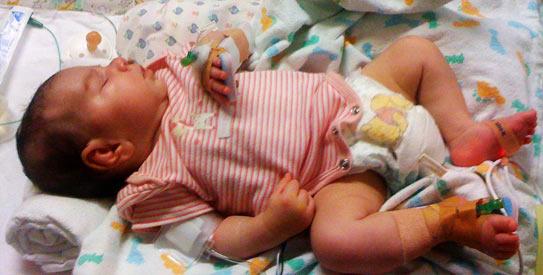
Melbourne - The National Institutes of Health (NIH) is set to launch a large trial using antibodies to test a way to prevent birth defects, such as blindness and deafness, caused by mothers passing a common virus to their unborn babies.
Australian blood plasma group CSL said on Thursday it would donate $2.5 million worth of cytomegalovirus (CMV) antibodies from human plasma to the NIH for the trial in the United States.
Analysis of the trial is expected in 2016.
There is no vaccine available yet to prevent CMV infection, the most common infection that causes birth defects. It affects 1-2 per cent of women for the first time during their pregnancy, and one-third of those pass it to their unborn babies.
More babies are born with CMV infection than Down Syndrome and almost as many as with cerebral palsy, said Bill Rawlinson, senior medical virologist at the University of New South Wales.
Babies infected with CMV can be born with serious problems, including mental and physical disabilities. In rare cases, it can be fatal.
About 1 percent of babies in the United States are born with CMV infection, with about 11 per cent of those showing symptoms at birth and a small portion having effects later.
Scientists have studied using antivirals and vaccines, but immunoglobulin appears to be the most promising therapy for pregnant women.
"I think this (the trial) is a good way of doing it because we'll get a definitive answer," Rawlinson told reporters.
The clinical trial will begin this month, screening around 150,000 pregnant women over four years to come up with 400 to test the injected antibodies and 400 to receive a placebo. Infants born to women in the study will be followed for two years.
CSL's chief scientific officer, Andrew Cuthbertson, said if the trial was successful, the therapy could be made available within this decade.











































Dear visitor, the comments section is undergoing an overhaul and will return soon.